
If you're still munching on peanut butter and jelly, you're missing out. A plethora of nut butters grace supermarket shelves these days, including almond, cashew, walnut and macadamia. Many of these come in raw and roasted forms, which may make you go running back to the peanut butter aisle where the choices are less complicated. Don't! Both versions of these butters offer great flavors that can be eaten alone or used to create recipes. The type you choose depends on your tastes, how you plan to use the butter and your health consciousness.
Process
Roasted nut butters are, as their name suggests, made with roasted nuts. Roasted nuts are treated with heat to bring out a toasty flavor. Raw nut butters are made from nuts that have not been heated. Both may contain additives such as salt, additional oil and a form of sugar.
Taste and Use
Roasted nut butters have a richer flavor that some people prefer -- but not all. If you plan to use nut butters on toast, crackers or alongside fruit, roasted butters may be a better choice. Either choice is okay for baking, unless the recipe specifies. For dressings, dips and sauces, raw butters may be the best choice.
Health Benefits
Nuts are a boon to good health. They are rich in monounsaturated fats, which help your heart without raising your cholesterol levels. Raw foodists claim that the heating process destroys certain enzymes and makes the nuts, and their corresponding nut butters, less healthful -- but these claims have not been adequately studied. A study published in the "Journal of the American College of Nutrition" in 2003 looked at the effects of roasted almond butter and raw almonds on the cholesterol and lipid level of men and women. After four weeks of consuming 100 grams of either type of almond product, the participants experienced a significant decrease in their low-density lipoprotein cholesterol levels -- the bad kind. Almond butter-consuming participants even experienced a slight increase in high-density lipoprotein cholesterol -- the good kind. Dr. Andrew Weil points out that roasting nuts does not affect their heart-healthy monounsaturated fat quality or content. Both roasted and raw nut butters are a significant source of protein, especially for vegetarians.
Considerations
Roasted nut butters are more subject to rancidity than raw butters. The roasting process may alter the polyunsaturated fats in the nuts, making them more vulnerable to oxidation. Butters are particularly susceptible to rancidity because all of the nut's surface is exposed to air. Rancid nuts are pro-imflammatory and cancer-causing, says Dr. Weil. One way to extend the life of your roasted nut butter is to store it in the refrigerator.
Related Articles

What Is the Difference Between Raw & ...
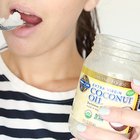
Skin Benefits of Eating Coconut Oil

Benefits of Raw Milk
How to Salt and Dry Pistachios

Substitute for Peanut Satay Sauce
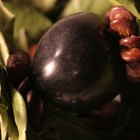
What Is a Kukui Nut?
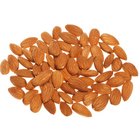
How to Cook Raw Almonds
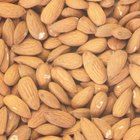
Types Of Almonds

Can I Substitute Olive Oil for ...
Do Almonds Ever Go Bad?
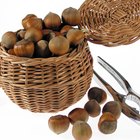
How to Eat Hazelnuts

Good Substitute for Cashews in Raw ...

Is Coconut Oil the Miracle Food It's ...
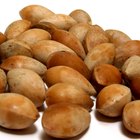
How to Cook With Ginkgo Nuts
How to Roast Raw Cashews
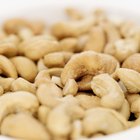
Is Cashew Butter Healthy?

Canola Oil Vs. Lard in Baking

How to Make Pistachio Flour

How to Store Raw Peanuts
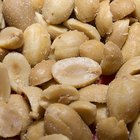
Type of Peanuts Used to Make Peanut ...
References
Writer Bio
Andrea Cespedes is a professionally trained chef who has focused studies in nutrition. With more than 20 years of experience in the fitness industry, she coaches cycling and running and teaches Pilates and yoga. She is an American Council on Exercise-certified personal trainer, RYT-200 and has degrees from Princeton and Columbia University.
Photo Credits
Jupiterimages/Comstock/Getty Images